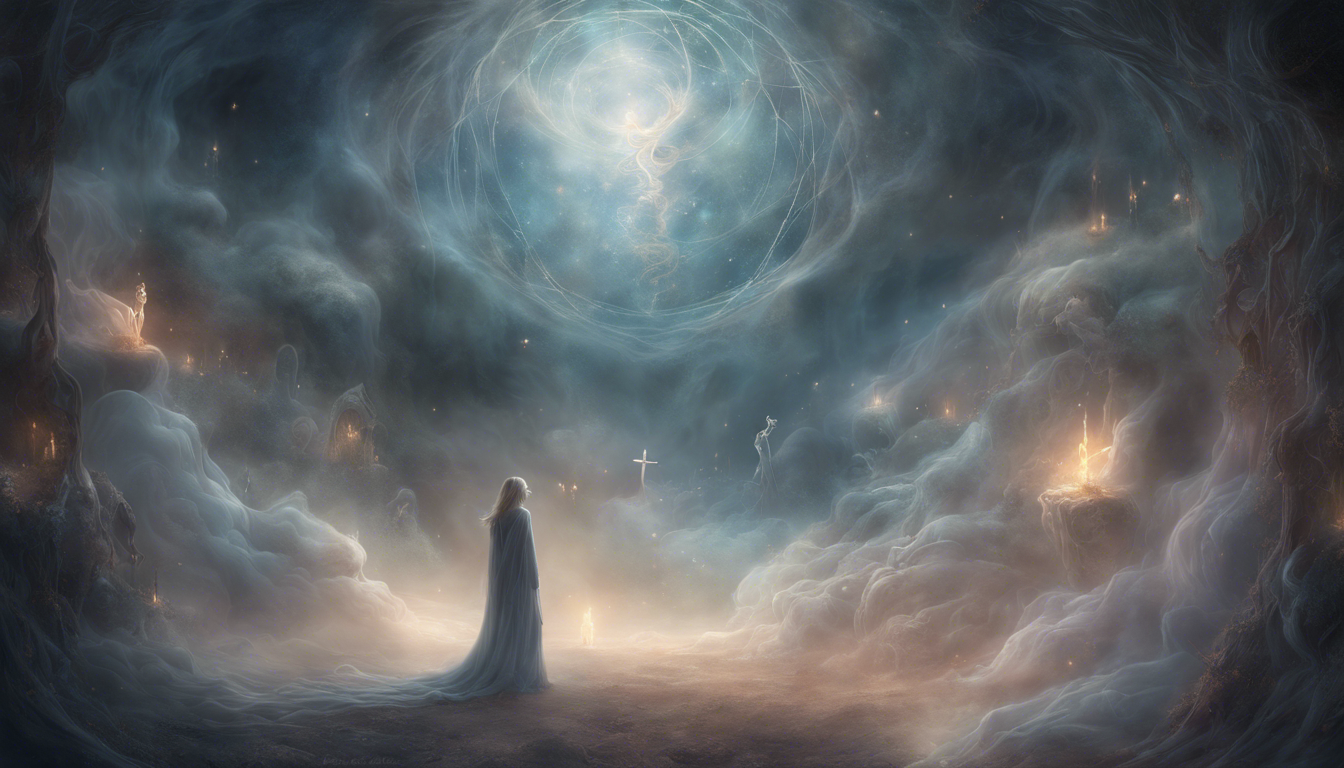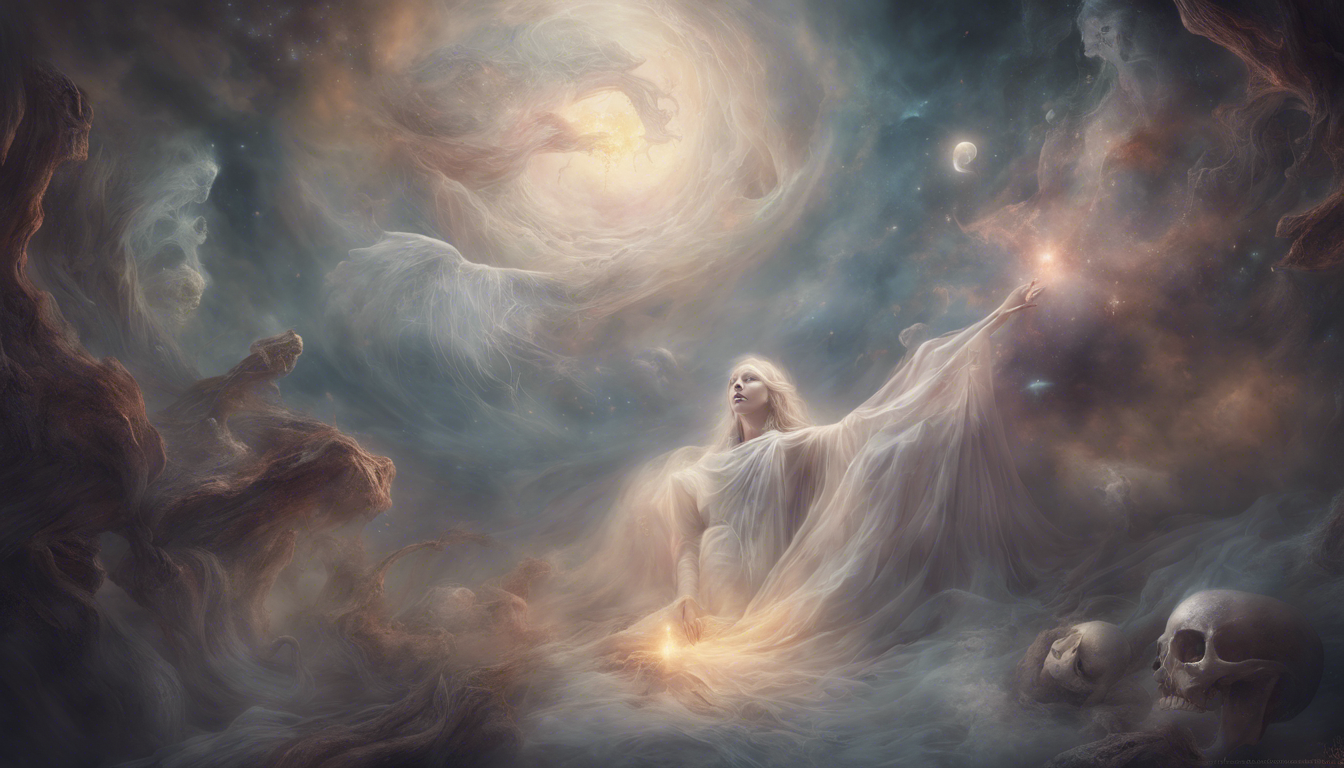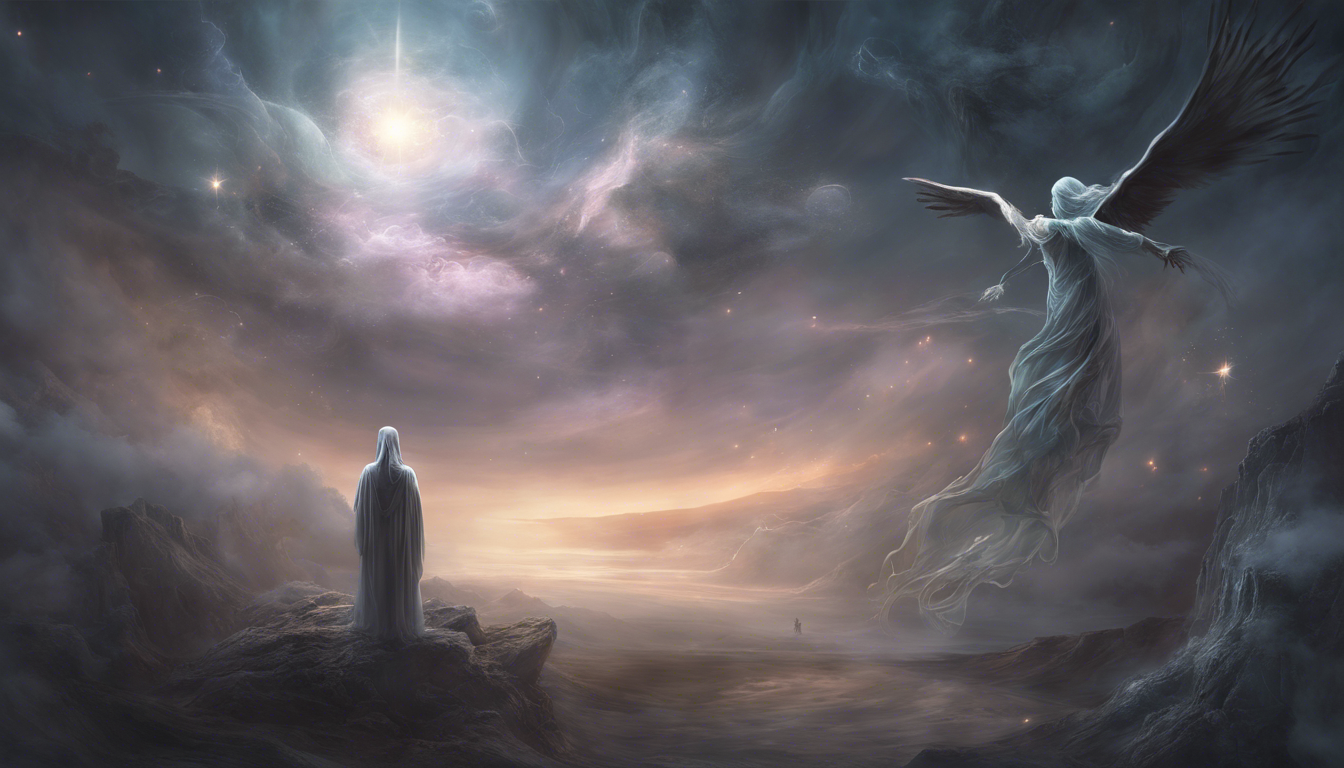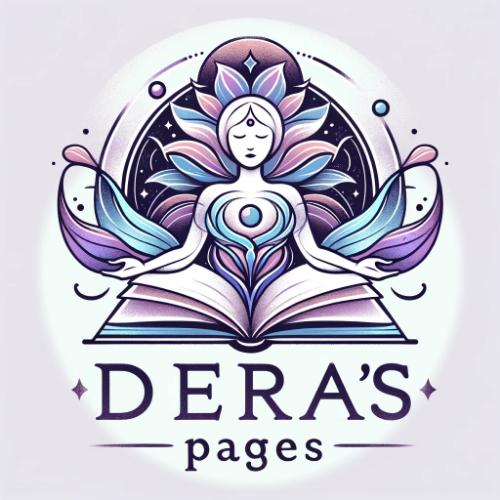Understanding Dreams: Exploring the Meaning of Death
Dreams have always fascinated and puzzled humanity. They offer insights into our subconscious mind and can provide us with valuable information about ourselves and our lives. One common and often complex dream theme is death. In this article, we will delve into the meaning of death in dreams and explore how it can be interpreted.
Death as Symbolic Transformation
In dreams, death is often symbolic and represents a significant transformation or change in one’s life. It does not necessarily mean physical death, but rather the end of a phase or the beginning of something new. Just like a caterpillar transforming into a butterfly, death in dreams can symbolize personal growth and rebirth.
Examples of symbolic deaths in dreams include the end of a relationship, career change, or major life transition. These dreams act as a wake-up call, urging us to let go of the old and embrace the new. They signify the need for change and growth to reach our full potential.
Exploring Fear and Anxiety
Death in dreams can also be a manifestation of fear and anxiety. The fear of the unknown, fear of losing someone or something, or fear of our own mortality can all contribute to the appearance of death in our dreams. These dreams provide an opportunity for us to confront and work through these fears.
By exploring the emotions and sensations experienced in these dreams, we can gain a deeper understanding of our fears and anxieties. This self-reflection allows us to address and overcome these challenges in our waking life, leading to personal growth and a greater sense of peace.
Messages from the Subconscious
Furthermore, dreams about death can also act as messages from our subconscious mind. Our subconscious often communicates through symbols and metaphors, and death in dreams can be one such symbol. It can indicate the need to let go of unhealthy patterns or beliefs that are holding us back in life.
These dreams invite us to reflect on our current emotional state and make necessary changes for our well-being. They provide an opportunity for self-reflection and can guide us towards a more fulfilling and authentic life.
Dreams about death are rich in symbolism and can offer valuable insights into our subconscious mind. They represent transformation, confront our fears, and deliver messages from our subconscious. By exploring and interpreting these dreams, we can gain a deeper understanding of ourselves and navigate through life’s challenges with greater clarity and purpose.
So next time you have a dream about death, remember to approach it with curiosity and an open mind. It may hold the key to unlocking your true potential.
Exploring the Symbolism: Decoding the Messages of Death in Dreams

Dreams have long been a mysterious realm that holds deep significance in the human psyche. They can be a source of inspiration, guidance, and even foresight. One intriguing aspect of dreams is the symbolism of death, which often leaves dreamers feeling puzzled and concerned. In this article, we will delve into the symbolism and messages associated with death in dreams, aiming to shed light on their meaning and significance.
Death as Symbolic Transformation
In dreams, death should not be interpreted as a literal prophecy of one’s demise, but rather as a powerful symbol of change, transformation, and rebirth. Just as the caterpillar transforms into a butterfly, death in dreams represents the end of one phase of life and the beginning of a new one. It signifies the shedding of old beliefs, habits, or situations that no longer serve us, making way for personal growth and spiritual advancement.
Understanding the Different Elements of Death in Dreams
1. The Grim Reaper: The iconic figure of the Grim Reaper often appears in dreams to represent mortality and the fear of the unknown. It serves as a reminder to embrace life and make the most of our time here on Earth.
2. Funerals: Attending a funeral in a dream can symbolize the need to let go of past experiences or relationships that have come to an end. It may also reflect a sense of mourning or grief over a significant loss in one’s waking life.
3. Rebirth: Dreams of death frequently symbolize a psychological or spiritual rebirth. They can indicate that a major transformation or awakening is taking place within the dreamer, signaling the end of an old way of being and the start of a new, more authentic self.
4. Dead Loved Ones: Dreaming of deceased loved ones can be a powerful way for the subconscious mind to process grief and heal emotional wounds. These dreams may serve as a comforting reminder that our loved ones are still with us in spirit and watching over us.
Decoding the Messages of Death in Dreams
When deciphering the messages behind death dreams, it is essential to consider the emotions and context surrounding the dream. Here are a few possible interpretations:
1. Embracing Change: The dream may be urging you to let go of old patterns, relationships, or situations that are no longer serving your highest good. It is a call to embrace change and embrace the opportunities that lie ahead.
2. Inner Transformation: The death symbolism could indicate a transformative journey within yourself. It may be time to explore your spirituality, heal past wounds, or let go of limiting beliefs that are holding you back from reaching your full potential.
3. Acknowledging Grief: Dreams of death can provide a safe space to acknowledge and process grief. If you have recently experienced a loss, these dreams may offer comfort and a reminder that it is okay to mourn and heal.
4. Bracing for Challenges: Death dreams can also be a warning of upcoming challenges or transitions in your waking life. They may serve as a reminder to prepare yourself mentally and emotionally for what lies ahead.
Dreams hold a wealth of symbolism and messages, and decoding the meaning of death dreams can offer profound insights into our subconscious mind. Rather than fearing these dreams, we should embrace them as opportunities for growth, transformation, and healing. By understanding the symbolism behind death in dreams, we can navigate life with a deeper sense of purpose and embrace the ever-changing nature of our existence. So, next time you dream of death, remember to look beyond the surface and explore the profound messages hidden within.
Psychological Perspectives: Insights into Dream Interpretation

Dreams have long fascinated and puzzled mankind. Ancient civilizations believed that dreams were messages from the gods, while modern psychology views them as windows into our subconscious minds. Dream interpretation is a complex and subjective field, drawing from various psychological perspectives to unravel the hidden meanings and symbols within our dreams. In this article, we will explore some of these perspectives and gain insights into the fascinating realm of dream interpretation.
The Freudian Approach: Unconscious Desires and Symbolism
Sigmund Freud, the father of psychoanalysis, believed that dreams were the “royal road to the unconscious.” According to Freud, dreams are expressions of our repressed desires and unfulfilled wishes. They serve as a means for the mind to release and process these unconscious thoughts. In Freudian dream interpretation, symbols play a crucial role. Images in dreams are believed to represent hidden desires and conflicts within our psyche. For example, dreaming of flying may symbolize a desire for freedom or escaping from a difficult situation. Through careful analysis of dream symbols, Freudian psychologists attempt to decipher the underlying meanings behind our dreams.
The Jungian Perspective: Archetypes and Collective Unconscious
Carl Jung, a disciple-turned-rival of Freud, introduced the concept of archetypes and the collective unconscious in dream interpretation. According to Jung, dreams exhibit recurring symbols and themes that are universally recognized across cultures and eras. These archetypal images, such as the wise old man or the trickster, represent fundamental aspects of the human psyche. Jung believed that dreams provide insights into our collective unconscious, a reservoir of shared experiences and symbols inherited from our ancestors. By identifying these archetypal symbols and their meanings, Jungian analysts seek a deeper understanding of the individual’s journey towards self-realization.
The Cognitive Perspective: Processing Information and Emotions
From a cognitive perspective, dreams are seen as the brain’s way of processing information and emotions. Dreams often incorporate elements from our waking lives, including recent events, thoughts, and emotions. The cognitive approach to dream interpretation focuses on understanding how the mind organizes and integrates these waking experiences into coherent narratives during sleep. Cognitive psychologists analyze the logical and narrative structures of dreams to uncover the underlying cognitive processes at work. They also explore the emotional aspects of dreams, studying how dreams can help us regulate our emotions and cope with daily stressors.
The Transpersonal Approach: Spiritual and Transcendent Experiences
For those interested in the spiritual dimensions of dreams, the transpersonal approach offers a unique perspective. Transpersonal psychology explores the transformative and transcendent experiences that can occur in dreams. It views dreams as portals to higher states of consciousness and spiritual insights. Dream symbols and narratives are seen as vehicles for personal growth, self-discovery, and spiritual awakening. Transpersonal psychologists pay attention to the symbolic and mystical aspects of dreams, helping individuals connect with their inner wisdom and explore the depths of their spiritual nature.
In conclusion, dream interpretation is a multi-faceted field that draws from various psychological perspectives. From Freud’s focus on unconscious desires and symbolism to Jung’s exploration of archetypes and the collective unconscious, each perspective offers unique insights into the hidden meanings within our dreams. The cognitive perspective emphasizes the processing of information and emotions, while the transpersonal approach delves into the spiritual dimensions of dream experiences. By integrating these perspectives, dream analysts can unravel the intricate tapestry of dreams, providing individuals with valuable insights into their inner worlds. So the next time you have a dream, remember to pay attention to the symbols, emotions, and narratives within it, as they may hold profound messages waiting to be discovered.
Unraveling the Mysteries: How to Interpret Death in Dreams

Dreams have long fascinated humans, as they offer a glimpse into our subconscious mind. One common theme that often sends a shiver down our spines is death. Dreaming of death can be unsettling, but it is important to remember that dreams are symbolic in nature. In this article, we will dive into the mysterious realm of dreams and explore how to interpret the meaning of death in dreams.
Understanding the Symbol
In dreams, death rarely represents literal death; instead, it carries symbolic meanings. Death in dreams often symbolizes a major transition or change in your waking life. It could represent the end of a relationship, the death of an old habit, or the emergence of a new phase in your life. It is a powerful symbol of transformation and rebirth.
Exploring the Different Types of Dreams
When it comes to interpreting death in dreams, it is essential to consider the different types of dreams. Here are a few common scenarios:
1. Death of a Loved One
Dreaming of the death of a loved one can be distressing. However, it is often a reflection of our fears of losing someone close to us. It may also signify the need to let go of past emotions or aspects of the relationship that no longer serve us.
2. Death of Yourself
Dreaming of your own death can be a startling experience. However, it is often a sign of personal transformation and growth. It may indicate that you are letting go of old beliefs or behaviors that no longer serve you, allowing for personal growth and self-discovery.
3. Witnessing Death
Watching someone else die in your dream can be quite unsettling. This type of dream often signifies the need to observe a situation or relationship from a different perspective. It may be a sign to distance yourself emotionally or to let go of negative influences in your life.
Guidelines for Interpretation
Now that we understand the symbolic nature of death in dreams, let’s explore some guidelines for interpretation:
- Pay attention to emotions: The emotions felt during the dream are crucial in understanding its meaning. Are you feeling fear, sadness, or relief?
- Consider the context: Analyze the dream within the context of your waking life. Are there any major transitions, changes, or unresolved issues you are currently facing?
- Look for patterns: If death-related dreams occur frequently, it may indicate a recurring theme or unresolved emotions that need to be addressed.
- Seek personal reflection: Take the time to reflect on the dream’s message and how it relates to your life. Consider journaling or discussing with a trusted confidant for further insight.
While dreaming of death can be unsettling, it is essential to remember that dreams are symbolic representations of our subconscious mind. Interpreting the meaning of death in dreams requires a thoughtful analysis of the symbolism and emotions involved. By paying attention to the context, emotions, and patterns within the dream, you can unravel the mysteries and use these insights to navigate your waking life with greater clarity and understanding.


Article written by Dera
Greetings, I am Dera, a 35-year-old individual with a deep passion for spirituality. Through my website, I aim to share my insights and knowledge to help others on their spiritual journey. Join me on the path to inner peace and enlightenment.